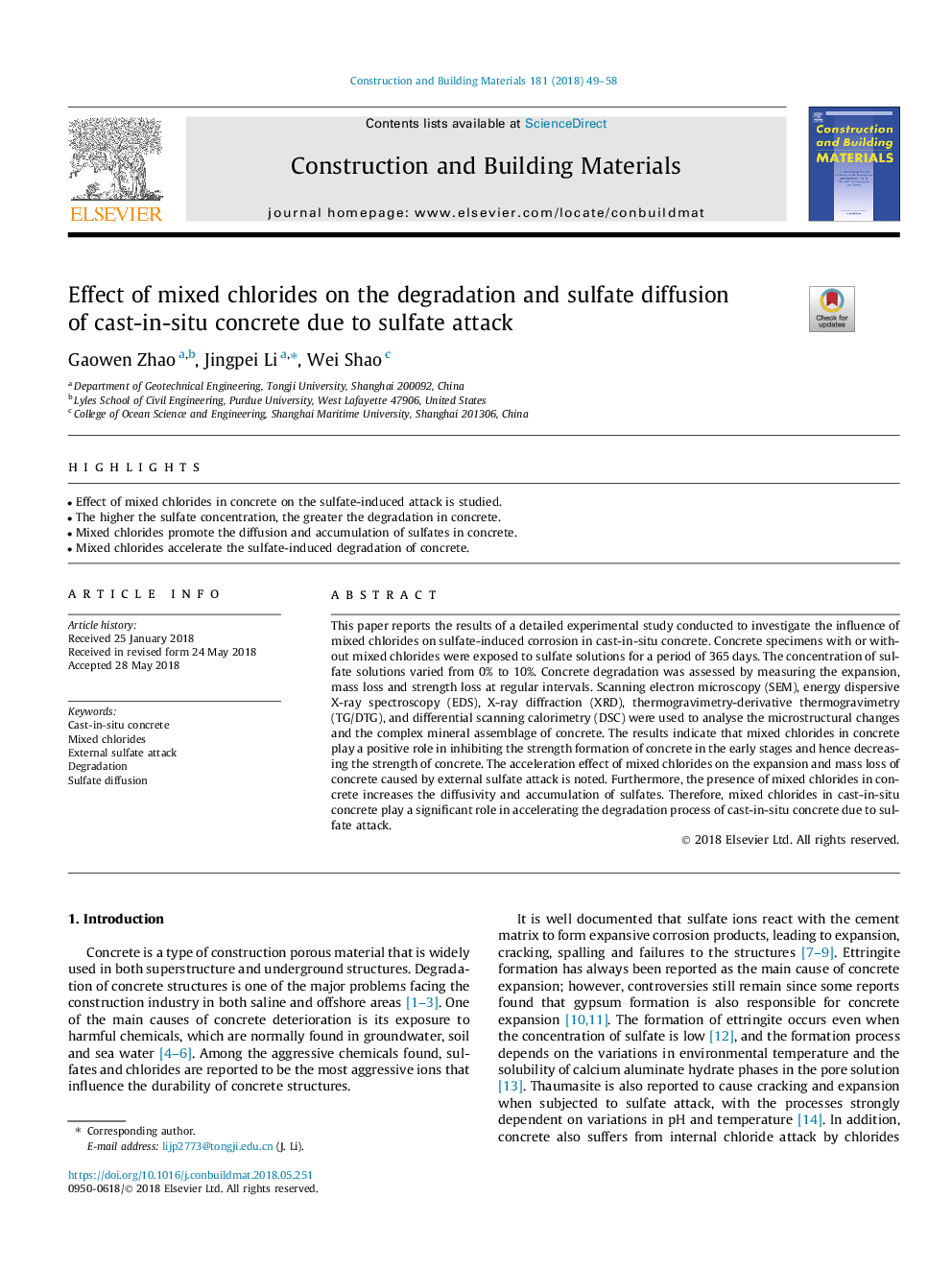| Article ID | Journal | Published Year | Pages | File Type |
|---|---|---|---|---|
| 6712368 | Construction and Building Materials | 2018 | 10 Pages |
Abstract
This paper reports the results of a detailed experimental study conducted to investigate the influence of mixed chlorides on sulfate-induced corrosion in cast-in-situ concrete. Concrete specimens with or without mixed chlorides were exposed to sulfate solutions for a period of 365â¯days. The concentration of sulfate solutions varied from 0% to 10%. Concrete degradation was assessed by measuring the expansion, mass loss and strength loss at regular intervals. Scanning electron microscopy (SEM), energy dispersive X-ray spectroscopy (EDS), X-ray diffraction (XRD), thermogravimetry-derivative thermogravimetry (TG/DTG), and differential scanning calorimetry (DSC) were used to analyse the microstructural changes and the complex mineral assemblage of concrete. The results indicate that mixed chlorides in concrete play a positive role in inhibiting the strength formation of concrete in the early stages and hence decreasing the strength of concrete. The acceleration effect of mixed chlorides on the expansion and mass loss of concrete caused by external sulfate attack is noted. Furthermore, the presence of mixed chlorides in concrete increases the diffusivity and accumulation of sulfates. Therefore, mixed chlorides in cast-in-situ concrete play a significant role in accelerating the degradation process of cast-in-situ concrete due to sulfate attack.
Keywords
Related Topics
Physical Sciences and Engineering
Engineering
Civil and Structural Engineering
Authors
Gaowen Zhao, Jingpei Li, Wei Shao,
